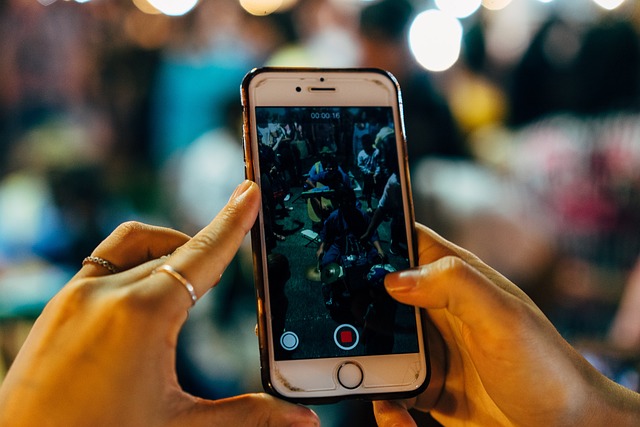In August 2023, the National Medical Commission (NMC) introduced its first-ever guidelines for Registered Medical Practitioners (RMPs) on the use of social media. These rules aim to uphold professional ethics, protect patient privacy, and ensure responsible online engagement by doctors. Whether you’re a practicing physician or a patient, it’s essential to understand what these rules mean in India’s digital age. Let’s check out all Now Know About NMC Social Media Guidelines for Doctors in India –
What Is the NMC Guideline for Doctors on Social Media?
The NMC Registered Medical Practitioner (Professional Conduct) Regulations, 2023 include a dedicated section outlining how doctors should use social platforms responsibly. The guidelines were officially notified on 2 August 2023.
The core objective is to allow doctors to use social media for public health education while preventing unethical practices such as patient solicitation or self-promotion through misleading tactics.
Important NMC Social Media Guidelines for Doctors in India
1. Information Must Be Accurate and Helpful
Doctors may share factual, verifiable educational content—for instance, information on preventive health, myth‑busting, or disease awareness. However, content must be truthful and non‑exploitative.
2. No Discussion of Specific Patient Cases
Doctors must not discuss patient treatment, prescribe medication, or share medical advice on public social media platforms. If a patient reaches out online, doctors should refer them to telemedicine or an in-person consultation instead.
3. Strict Privacy Rules
Sharing patient images, scans (like CT or PET), or treatment outcomes is strictly prohibited, even if identifying details are removed. Once posted, such data becomes public and beyond the control of the doctor or patient.
4. Self-Promotion and Manipulation Banned
Doctors must not purchase likes, followers, or higher search rankings, nor use apps to solicit patients. Testimonials, endorsements, or promotional claims are forbidden. Posting videos of healed patients, surgical results, or before‑and‑after transformations is prohibited.
5. Maintain Professional Decorum
All interactions on social media should reflect the dignity, ethics, and decorum expected of medical professionals. Any content must avoid boundary violations and maintain respect toward patients and colleagues.
6. Webpage Standards Apply Too
NMC rules apply equally to “offline” webpages or websites managed by doctors—social media principles must not be bypassed through personal blogs or clinic sites.
Why These NMC Rules for Doctors Using Social Media Matters?
Protecting Patient Privacy and Trust
The rules prioritize patient rights and confidentiality, ensuring that personal information is not misused or shared without consent. Public trust in the medical profession is reinforced when privacy is respected.
Combating Unethical Marketing
By banning endorsements, solicitations, and testimonial videos, NMC aims to eliminate the trend of clinical self‑branding that misleads patients and compromises professional integrity.
Educating Without Exploiting
Doctors can engage in public health education and myth‑busting. This supports better-informed communities without slipping into commercial promotion or sensational content.
Challenges in Enforcement
- Ambiguity on Binding Nature: The medical fraternity has sought clarity on whether these regulations are mandatory or advisory. Enforcement guidelines need further specification ForumIAS.
- Monitoring Online Behavior: Identifying violations—like hidden promotions or algorithm manipulation—can be difficult in real time.
- Digital Divide Awareness: Not all doctors and patients are aware of these rules. Education and awareness campaigns are needed.
What About Unqualified People Spreading Misinformation?
While doctors now face strict rules on what they can post online, social media is still flooded with unqualified individuals giving medical advice, pushing “miracle cures,” and dismissing modern medicine. These self‑styled experts face no checks or penalties because they aren’t regulated by any medical authority.
This creates an unfair imbalance — licensed doctors are restricted, but untrained voices spread misinformation freely.
Shouldn’t there also be rules for anyone sharing health advice online, so patients aren’t misled by false claims?
FAQs on Now Know About NMC Social Media Guidelines for Doctors in India
Is it okay to post medical charts or X-rays (anonymized) for educational use?
No. The guidelines prohibit posting any patient images or scans even if anonymized, unless used in formal academic publications or teaching with consent and peer review.
Can testimonials or patient reviews be shared?
No. Soliciting or sharing patient testimonials, endorsements, or reviews is strictly forbidden.
Are doctors allowed to advertise their services on social media?
No. Self-promotion, direct or indirect patient solicitation, or purchasing social media popularity tools is considered unethical and prohibited.
Can doctors discuss general medical topics publicly?
Yes. Doctors are encouraged to share public health tips, general preventive advice, and medically accurate information within their field of expertise.
Conclusion
The NMC social media guidelines serve as a much‑needed framework for ethical digital conduct by doctors in India. They balance the need for medical professionals to educate the public with a firm stance against self-promotion and privacy breach. With increasing online presence, compliance with these rules will be key to maintaining trust, professionalism, and patient rights in the digital age.
Sources & References
- NMC Guidelines on RMP Social Media Use, 2 August 2023
- Medical Dialogues on NMC “11 Commandments,” 13 Aug 2023
- Ethical and Legal Considerations for Clinical Data on Social Media, 2023
- ForumIAS commentary on NMC & patient rights





